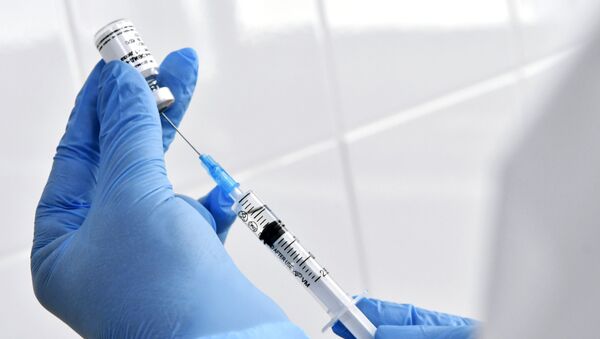"I'm optimistic that we could reach that point before the end of this year," Oxford Vaccine Trial Chief Investigator Andrew Pollard recently told British lawmakers, Reuters reported.
“We are getting closer to [a vaccine], but we are not there yet," Pollard added, also noting that once the trial results come out, the data will have to be reviewed by regulators so that a political decision can be made on who would receive the vaccine first.
When asked if the vaccine, which is being developed in conjunction with British pharmaceutical company AstraZeneca, could be ready before Christmas, Pollard responded: “There is a small chance of that being possible, but I just don't know."
Researchers began working on the Oxford vaccine, called AZD1222 or ChAdOx1 nCoV-19, in January.
The viral vector vaccine candidate is made from a weakened version of a common cold virus that causes infections in chimpanzees. The virus was genetically altered so that it’s impossible to grow in humans, according to Precision Vaccinations. The virus was also modified to include the genetic sequence of the spike protein of SARS-CoV-2, the virus which causes COVID-19. The coronavirus uses the protein to enter human cells.
When asked about the efficacy of the vaccine, Pollard responded: “I think good is having vaccines that have significant efficacy - so whether, I mean, that is 50, 60, 70, 80% , whatever the figure is - is an enormous achievement.”
"It means from a health system point of view, there are fewer people with COVID going into hospital, that people who develop cancer can have their operations of chemotherapy - it’s a complete game-changer and a success if we meet those efficacy end points,” Pollard added.
Despite the news, the world may not immediately return to normal once the vaccine becomes available, Pollard warned.
"It takes time to roll out vaccines. Not everyone will take them," he said. "We will still have people getting this virus, because it is just too good at transmitting."
There are several other vaccine candidates, according to the World Health Organization, including drugs developed by Johnson & Johnson, Moderna and Pfizer that are undergoing Phase 3 clinical testing in the US.

